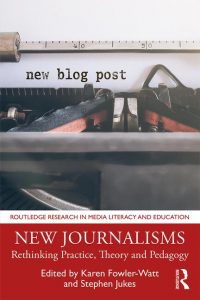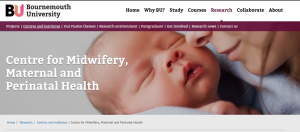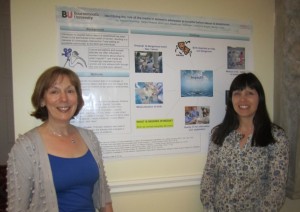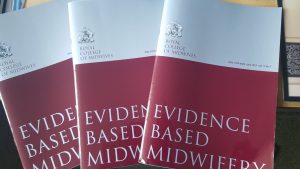
Karen Fowler-Watt and Stephen Jukes are excited to share their new book: New Journalisms: Rethinking Practice, Theory and Pedagogy, which is published as paperback and e-book by Routledge this week.
It has received a range of endorsements from within the academy, industry and our international partners:
New Journalisms invites an important conversation about the future of news reporting, inspiring us to revisit familiar perspectives, challenge our assumptions, and forge fresh approaches. Taken together the chapters set in motion a dazzling array of critiques, each informed by an impassioned commitment to reinvent journalism anew in the public interest. Essential reading.
- Professor Stuart Allan, Cardiff University
New Journalisms provides us with a much-needed road map, making a vital contribution to the debate about how to reboot journalism for this age of technological, economic and editorial disruption.
- Stephen Sackur, Hard Talkpresenter, BBC World News and BBC News Channel
Bring together incredible faculty, journalists and students from five continents to reinvent media and you have the Salzburg Academy on Media and Global Change. Over a dozen years the Academy has driven a global movement for media literacy, turned news consumers into producers, encouraged social entrepreneurship, and challenged scholars to rethink everything they thought they knew. Arising from this intellectual wind tunnel, New Journalisms offers thinking we desperately need to address information overload and manipulation.
- Stephen Salyer, President & CEO, Salzburg Global Seminar
The plural in New Journalisms is important in that the edited collection focuses on not only new challenges facing journalism (in the singular) but also seeks to capture a range of new practices that are being employed across a diversity of media. The book explores how these new practices can lead to a re-imagining of journalism in terms of practice, theory and pedagogy.
It forms part of a media literacy series, Routledge Research in Media Literacy and Education, co-edited by CEMP’s Professor Julian McDougall, https://cemp.ac.uk. The book takes an innovative approach in its aim to challenge the normative discourse about practice, theory and pedagogy through encouraging contributors from industry and the academy to re-imagine journalism in all its forms.
It brings together high-profile academics, emerging researchers and well-known journalism practitioners. These include some leading figures in the field. Many of them come together each year at the Salzburg Academy on Media & Global Change: https://www.salzburgglobal.org/multi-year-series/media-academy . This global alliance of activist scholars, media makers and experimental educators, shares values reflecting a school of thought that advocates transformative pedagogies and practices, which also support civic impact. Given the current period of uncertainty and introspection in the media, the book represents a timely intervention in the debate about journalism but also aims to have a sustainable impact due to its forward-looking nature.
Not for the first time, journalism is in a period of introspection. This time, however, it is not about ‘drinking in the last chance saloon’ as a result of self-inflicted wounds after the phone hacking scandal and ensuing Leveson inquiry. Today, the crisis facing the media comes from external forces, whether it be attacks from the U.S. president, the rising voice of partisan opinion or narratives of fear. Established media appears to be drowned out and ‘the people who want to see journalism fail now have a bigger megaphone than ever’ (Bell, 2017). The Internet has perversely reinforced personal opinion as the public consumes what it wants to hear. The Internet has thus, in part, failed to deliver on the connectivity it promised.
Against this landscape, the edited collection explores a series of key themes and objectives:
− New challenges: towards a definition of ‘new journalisms’, those challenges presented by a crisis of professional identity, changing patterns of consumption and engagement with news, and issues arising from public disaffection with elites, journalism and the media
− New practices: ways of connecting publics through listening to marginalised voices, the increased potential of alternative journalisms, the impact of analytics, considering how journalists handle the rise of violent and graphic images,
− Re-imagining: how journalism education can lead to new journalisms, how to engage people in an age of distrust, pedagogies to enhance an understanding of narratives of terror and threats to human rights, teaching new ways of telling human stories.
Karen and Stephen will be discussing the book in a ‘salon’ at the Salzburg Media Academy in late July and they are hosting an official launch at BU as part of a journalism education symposium for CEMP’s Journalism Education Research Group on October 10th (2-5pm in the EBC).
Author biographies:
Dr Karen Fowler-Watt is a senior principal academic at Bournemouth University where she is research theme lead for journalism education in the Centre for Excellence in Media Practice. As a BBC journalist and editor for Radio 4 News and Current Affairs, she worked in Moscow, the Middle East, Northern Ireland, and the United States. Her research focuses on questions of empathy and voice with specific interest in reimagining journalism education, trauma awareness, and conflict reporting. She works with the Salzburg Academy on Media & Global Change and is engaged in a pedagogy project with Global Voices. https://staffprofiles.bournemouth.ac.uk/display/kfowler-watt
Stephen Jukes is Professor of Journalism in the Faculty of Media & Communication at Bournemouth University. He worked in Europe, the Middle East, and the Americas as a foreign correspondent and editor for Reuters before moving into the academic world in 2005. His research focuses on areas of objectivity and emotion in news with an emphasis on affect, trauma, and conflict journalism. He works with the Salzburg Academy on Media & Global Change, chairs the Dart Centre for Journalism & Trauma in Europe, and is a trustee of the Institute for War & Peace Reporting. https://staffprofiles.bournemouth.ac.uk/display/sjukes





 All rivers lead to the sea, which is why it is important to consider the health of both our rivers and oceans. To celebrate the United Nations’ World Oceans Day 2019 (
All rivers lead to the sea, which is why it is important to consider the health of both our rivers and oceans. To celebrate the United Nations’ World Oceans Day 2019 (










 April’s Café Scientifique – Should we help machines understand and respond to our emotions?
April’s Café Scientifique – Should we help machines understand and respond to our emotions? Postgraduate Research Experience Survey (PRES) 2024 – 2 WEEKS LEFT
Postgraduate Research Experience Survey (PRES) 2024 – 2 WEEKS LEFT Working with The Conversation: online training session – Wednesday 8th May
Working with The Conversation: online training session – Wednesday 8th May Apply for up to £1,000 to deliver an event and take part in a national festival of public engagement with research
Apply for up to £1,000 to deliver an event and take part in a national festival of public engagement with research MSCA Postdoctoral Fellowships 2024
MSCA Postdoctoral Fellowships 2024 Horizon Europe News – December 2023
Horizon Europe News – December 2023